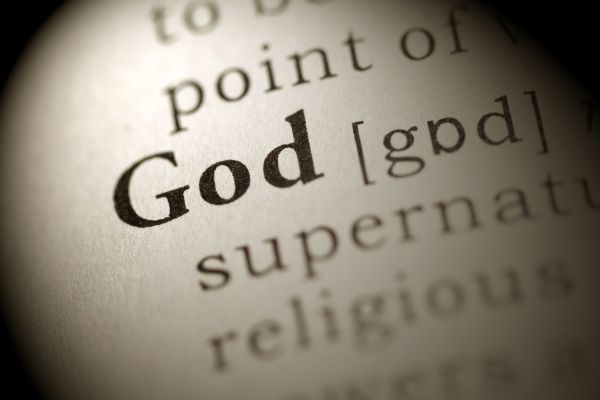Is the Islamic God all-loving? This question has long inspired deep theological and philosophical discussions, especially when compared to the Christian understanding of divine love. Like in most other religions, the nature of God’s love in both religions is central to their beliefs. In both religions, God’s love is essential, but the nature and extent of that love is different and this has profound implications on how believers perceive their relationship with the divine.
We’ve studied the key texts of both religions to provide an unbiased analysis of their views on God’s love, contrasting Islamic and Christian perspectives, exploring philosophical ideas on moral perfection, so you can form your opinion based on facts, not centuries of misinterpretation and propaganda.
The Islamic Concept of God’s Love
In Islam, Allah is described as the one and only God, whose nature is absolute and incomparable. While Allah is often depicted as compassionate and merciful, His love is not unconditional. You must fully obey Him to receive His love and mercy
In fact, many verses in the Quran specify that Allah does not love certain types of people. For example, in Surah 3:32, Allah says, “Say, ‘Obey Allah and the Messenger; but if they turn away, indeed Allah does not like the disbelievers.'” Similarly, the Quran frequently mentions that Allah’s love is reserved for those who are righteous, obedient, and submit to His will through faith and good deeds.
The Quran also presents Allah as a just and righteous judge. His love, while evident, is often conditional, tied to a person’s actions and devotion to Islamic teachings. Allah loves humans but hates their sins, in other words, it is selective and extended toward those who are faithful, sincere, and seek it through their adherence to His guidance, rather than to those who are persistently sinful, oppressive, or rebellious.
Some scholars argue that the conditional nature of divine love in Islam may conflict with the idea of moral perfection, since earned or conditional love lacks the selflessness and grace that define true moral perfection. More or less this sets up a conundrum especially when considering the idea that a morally perfect deity would, by nature, be all-loving.

The Christian Understanding of Divine Love
In stark contrast, Christianity teaches that God is an all-loving deity, his love is unconditional and extended to all. This belief is most clearly expressed in the famous verse from John 3:16, “For God so loved the world that He gave His one and only Son, that whoever believes in Him shall not perish but have eternal life.” For Christians, God’s love is not based on human merit or obedience. Instead, it is a love that transcends human actions and is freely given, exemplified through the ultimate sacrifice of Jesus Christ for the salvation of humanity.
Christianity’s portrayal of God as a loving Father further underscores the nature of divine love. God’s love is seen as merciful, unconditional, and inclusive, offering salvation to all, regardless of past deeds. In Christian doctrine, love is not earned or contingent on following rules; it is an act of grace that reflects the perfection of God’s moral nature. This perspective, positions God as morally perfect, with His love being the central attribute that defines His essence.
Philosophical Perspectives on Moral Perfection and Divine Love
The debate about whether the Islamic or Christian conception of God aligns with moral perfection often centers on the idea of unconditional love. Dr. William Lane Craig, a Christian philosopher, argues that for a being to be morally perfect, He must possess all-encompassing love, a love that is extended freely, regardless of a person’s actions or worthiness. Craig compares the Islamic understanding of God’s love to the behavior of a parent who withholds affection from a child unless the child earns it through good behavior. According to Craig, this conditional love is morally flawed because it creates an environment of emotional manipulation rather than genuine affection.
Craig’s argument asserts that unconditional love, which does not demand human beings to meet certain conditions before receiving love, reflects the highest form of moral perfection. He compares this to the Christian concept of God’s love, which is freely given and not contingent on human actions. The idea is that if a being is morally perfect, their love must be boundless and given without conditions or expectations. This unconditional love, Craig argues, is what makes Christianity’s portrayal of God morally superior.
Comparing Islamic and Christian Views on Divine Love
When comparing the two perspectives, several key differences emerge:
Conditional vs. Unconditional Love: In Islam, Allah’s love is conditional, and He is described as not loving those who are wicked or disobedient. Conversely, Christianity teaches that God’s love is unconditional and given freely to all, regardless of moral merit.
Divine Justice and Mercy: While both Islam and Christianity emphasize God’s justice, Islam often portrays Allah as a strict judge, rewarding the righteous and punishing the wicked. In Christianity, God’s justice is tempered by mercy, as demonstrated through the sacrifice of Jesus, which offers salvation even to those who do not deserve it.
Moral Perfection and Love: The Christian argument is that a morally perfect God must be all-loving, as love is an essential attribute of moral perfection. By contrast, the Islamic view suggests that God’s love, while present, is conditional and often linked to adherence to religious duties and righteous living.
Theological and Ethical Implications
The question of whether the Islamic God is all-loving depends largely on one’s definition of love and moral perfection. From the Christian perspective, an all-loving God is one who shows grace and mercy to all, extending love to both the righteous and the sinner. This concept of love is viewed as a central tenet of God’s nature and essential to His moral perfection. Christians believe that God’s love is freely given, without the need for human beings to earn it.
In contrast, the Islamic view of a God whose love is conditional may raise questions about the nature of divine moral perfection. If love is defined as unconditional and absolute, then a God who withholds love unless certain conditions are met could be seen as morally imperfect from this philosophical standpoint. However, Islam emphasizes that Allah’s mercy and forgiveness are available to all who repent and strive to live according to His will, suggesting that while His love may be selective, it is not absent.
Final Words
The debate over whether the Islamic God is all-loving hinges on deep theological and philosophical questions about the nature of divine love. Christianity’s portrayal of an unconditional, all-encompassing love reflects a moral perfection that is seen as central to God’s essence. By contrast, Islam’s view of a God whose love is conditional raises important questions about the nature of perfection and whether a being can be morally perfect without offering love freely to all.
Ultimately, both religions present complex views on God’s love, shaped by their unique theological frameworks. While Christianity emphasizes God’s unconditional love as a reflection of His moral perfection, Islam presents a more conditional view that underscores the importance of obedience and submission to divine will. The question of divine love, and whether it is unconditional or conditional, continues to be a point of theological divergence and philosophical reflection between these two faiths.
